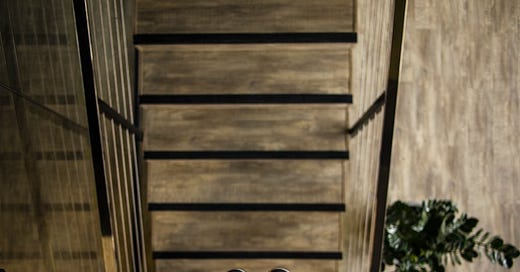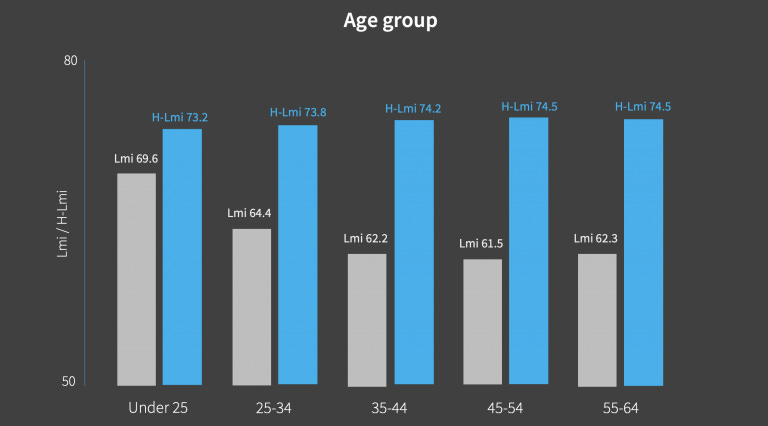The uneven toll of remote pain
ALSO: *that* viral Twitter thread / how work can age your body / hear from the Culture Doctor
Make Work Better is a weekly newsletter striving to make sense of how work is changing (and how we can create winning workplace cultures when we’ve not been to our workplace in months). If you like it, share it!
Photo by Daria Nepriakhina on Unsplash
Uneven impact of remote working will determine your firm’s next step
Last week there was inevitably lots of coverage for the resignation of the boorish boss of KPMG whose career blew-up after he scolded his exhausted team to ‘stop moaning’.
For those who weren’t following the story, the firm’s UK Chair, Bill Michael, dialled into a team Zoom of several hundred employees and did some classic School of Straight Talking blather about the way he saw the world. No doubt Bill is famous for ‘telling it like it is’ amongst colleagues. One of the biggest characters in consulting no doubt. Among his missives along the way last week was a demand that colleagues ‘stop playing the victim card’. You got a pretty vivid sense of Mr Michael when you heard that he told employees that he’d been meeting with clients throughout lockdown, called the idea of unconscious bias ‘complete crap’ and generally dismissed stats reporting that half of his team reported feeling ‘drained’.
you can read the FT article on the story for free if you click via this Google search
here’s a Guardian piece on it
There’s more to this than meets the eye. The high and lows of pandemic working have been unevenly distributed - and there have been plenty of people on the rough end. Those who live alone have experienced desperate isolation, parents have had to deal with the stress of unempathetic bosses expecting them to manage back-to-back Teams calls and domestic responsibilities have fallen inequitably on women.
On this last group, in the US there has been a lot of coverage about how millions of women (faced with the burdens of extra housework and childcare) have dropped out of employment in the last few months.
New Yorker: Why the pandemic is forcing women out of the workforce
NYT: Why did hundreds of thousands of women drop out of the workforce?
While an elective use of the furlough scheme may have kept the same workers protected in their roles in the UK (I’ve heard of multiple cases of workers asking to be stood down till schools are back), don’t be surprised if there are unexpected consequences on both sides of the Atlantic.
Even if these women return later in 2021, modern work is filled with lazy leaders who bemoan the lack of available female talent for them having an all male management structure. Women frequently don’t have senior leadership roles, not because they are measurably less talented but because they have children and firms use their periods of absence (and therefore less experience) to pass them over.
It looks like one of the second order effects of Covid will be to impact women’s careers. Professor Scott Galloway said this week, “One of the most frightening statistics that I’ve seen is that women’s participation in the workforce has regressed thirty-five years”.1 And while we can see that impact on women we also know that other groups are suffering too. (Below, Elizabeth Uviebinene talks about the impact that younger workers are experiencing on their mental health from demanding and insecure managers).
When KPMG’s Bill Michael says he can’t see what all the fuss is about it reflects that there are significant group of people like him who aren’t seeing other people’s lived experience. The worrying thing is that in most firms these relics aren’t being fired, they’re making the call of what happens next.
The work that has been published in the Leesman Index of workplace satisfaction also gives us a pointer to this dichotomy. In normal times Leesman measure how happy and productive workers are in their workplaces, and for the last twelve months they’ve recorded how happy workers are working remotely.
In this first chart the left hand bar in the pairs is the satisfaction of each demographic group in the office, and the second is how happy/productive they are at home. Generally most groups have seen an uplift in general satisfaction when it comes to getting their jobs done - but the youngest workers (on the far left) have seen less of a benefit.
The reason for the differences is largely a reflection of how people are working. Those who have a dedicated home office are in 7th heaven. Utterly elated. Lock the door and may the Zooms commence! Wench, make an Alexa announcement when my food is ready! This Leesman score of 79.1 (for dedicated home offices) is right at the top of their index. In contrast the kitchen table crew are significantly less happy - in fact the score of 67.1 is below what younger-aged workers scored for their satisfaction with the office.
If you then add the impact of isolation being unevenly distributed to younger workers you can imagine that there starts to be different planets of experience between rich bosses like Mr Michael, with home offices and a housekeeper bringing him fruit platters, and those at the start of their career working from their beds, praying for the microwave to come free in the three minutes they have between calls.
The challenge for the next twelve months is making sure that whoever makes the decisions going forwards takes everyone’s perspectives into account. This stuff is complicated - once schools are back parents are likely to be one of the groups most keen to keep a significant slice of remote working, while younger workers might be happier to come into the office especially if they are rewarded (not least with better coaching) for doing so. Above all if you see a Bill Michael in your midst don’t be afraid to push back with some evidence - you never know what decisions he might be hatching in his man den.
*That* viral Twitter thread
Last week you might have seen the latest version of a viral Twitter thread about how offices ‘are over’.

While this thread is helpful for Chris Herd and his business (supplying remote working solutions), the explosive conclusions he makes don’t seem to be fully born out by third party data.
Along the way, Chris claims that:
‘HQs are over’ with firms set to reduce their office size by up to 70%
Firms are going remote first because it gives them greater access to talent
Companies will swap a cost of $20k a year per worker on offices in favour of $2k a year for remote expenses (Chris is actually Scottish but he knows that previous versions of his thread have gone internationally viral, hence the $)
Don’t worry, firms will be getting workers together in person for face-to-face gathering. Options include: ‘Portugal, Spain, Puerto Rico’
I tried to find some published evidence for any of these revelations and came up short. So, instead, I posted a thread of my own. All of the sources are included along the way. The conclusions are rather different…

Give it a share!
It’s not a new podcast but a brilliant one from last year when I got the chance to chat to Professor Frances Frei. Frances is the person that companies call when their culture runs into problems - so she’s worked at places like Uber, WeWork and Riot Games. I wanted to understand what does someone like that do when they walk into the room. She explains her methodology and what good culture means to her.
She gives some questions that anyone should be asking their team members:
“How well do you think our culture sets up people for success? Are there ways that it also undermines our effectiveness?”
“Have any of our values or commitments to each other become empty or weaponised”
“How aligned is our culture with the current opportunities and challenges?”
“What do we need to change culturally to achieve our most ambitious goals”
There’s also an intriguing exit interview question:
“As someone who cares deeply about the culture here, is there anything you think I should know about your experience or the experiences of other people?”
Beware - all that overwork has an impact on your body! Junior doctors’ bodies age six times faster than normal during their intense year of training I’ve shared this before but I’m using it in some of my writing this week and I find it mind-blowing
Beyond burnout: a huge HBR special on how people are feeling kebabed by work right now
Half of younger workers have quit a job for mental health reasons. Along the lines of the story of Bill Michael, Liz Uviebinene talks about the toll that bad managers are having on younger workers
The majority of people think 2020 was their most stressful year ever at work. Three-quarters of workers wish their firms were doing more to help with their mental health challenges
Spotify and Salesforce announced long-term work plans. Spotify will allow workers to WFA (work from anywhere) subject to their manager’s approval. Salesforce use the same acronym but say most colleagues will probably be in the office 1-3 days a week
Singing circles, the end of religion and how we can find community in each other: anyone who reads this knows I am a huge fan of both Casper ter Kuile and Anne Helen Petersen - this is such a thoughtful discussion between them
This column by the FT’s workplace expert (reprinted here in the Irish Times) explains why you might not be able to decide which days you work in the office in the future
I did a Q&A session for London Speaker Bureau’s clients. (Contact LSB if you’re interested in something for your event)
Make Work Better is created by Bruce Daisley, workplace culture enthusiast. You can find more about Bruce’s book, podcast and writing at the Eat Sleep Work Repeat website. My brand new Audible Original about remote working was a top 10 title on Audible this month - it’s free if you’re an Audible subscriber.
2nd book writing status: ███░░░░░░░░░ 27% (…don’t!)








